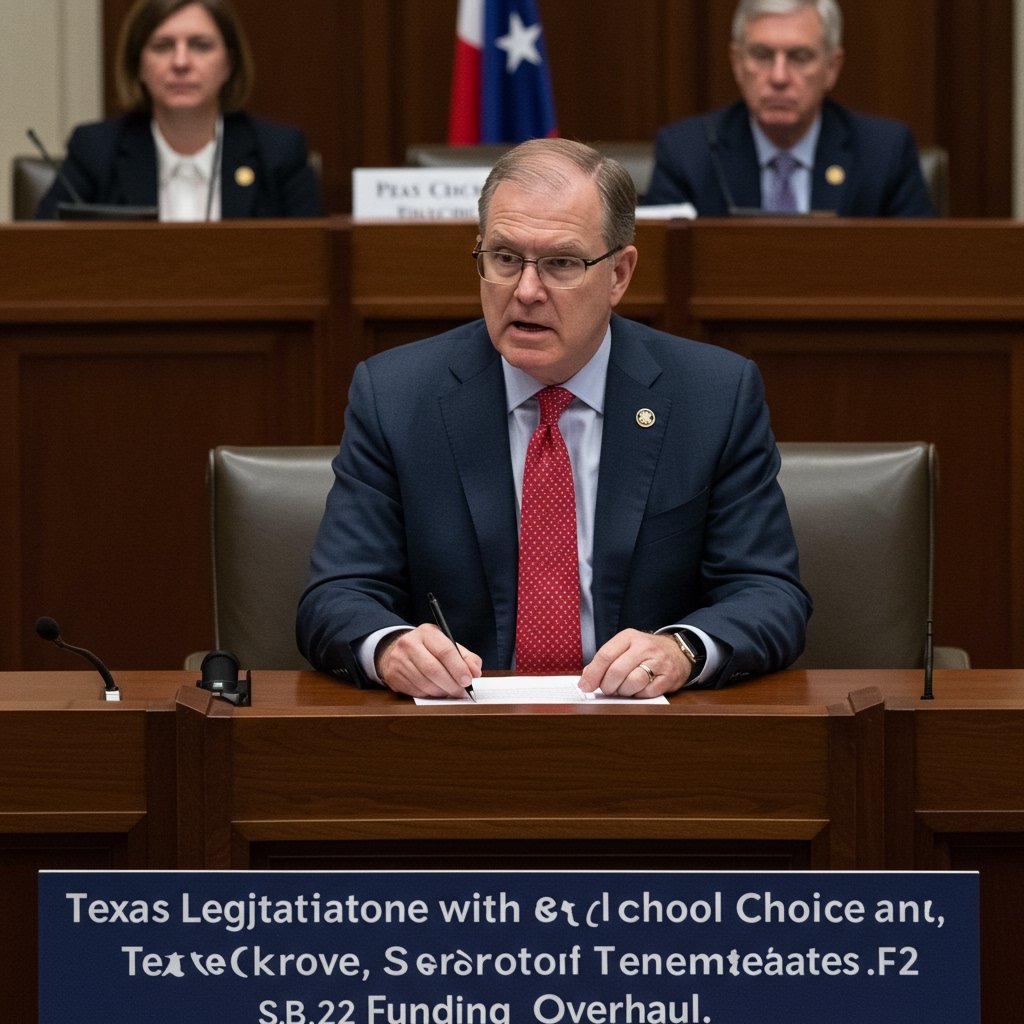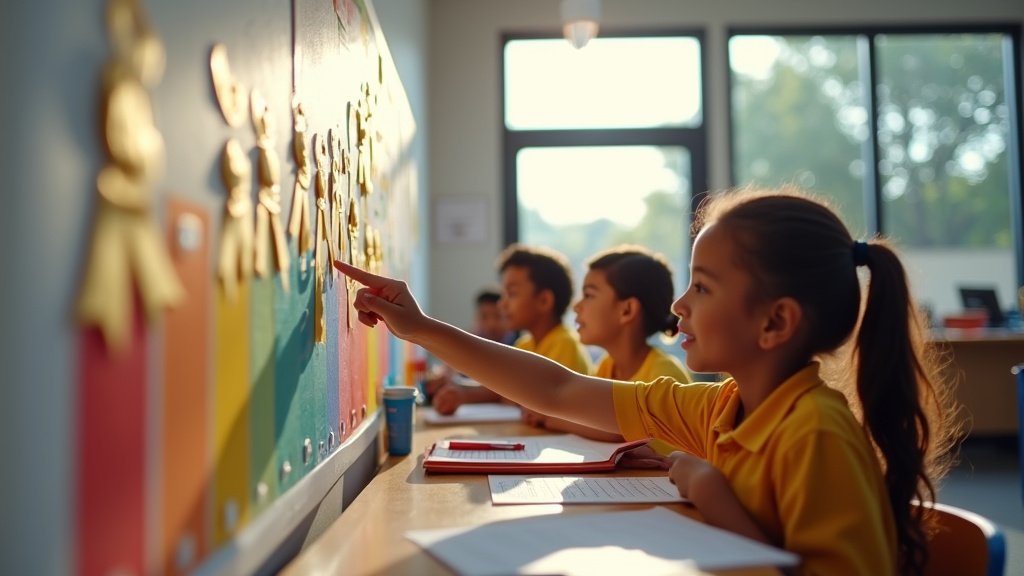Texas Senate Committee Engages in Extensive Debate on Landmark School Funding Bill, S.B. 22
AUSTIN, Texas – The Texas Senate Education Committee convened on Tuesday for an extensive and often pointed hearing, receiving testimony from a broad spectrum of stakeholders regarding Senate Bill 22. This comprehensive legislative proposal aims to fundamentally reshape the state’s approach to public education funding and parental choice. Sponsored by Senator Anya Sharma, S.B. 22 represents a significant effort to address key priorities within the Texas education landscape, packaging two major initiatives into a single bill: the establishment of a K-12 education savings account (ESA) program and the allocation of a substantial $1.2 billion specifically designated for statewide teacher salary increases.
The hearing, which stretched for several hours, underscored the deep divisions and complex considerations inherent in reforming the state’s education system. Witnesses from various educational organizations, advocacy groups, and parent communities presented arguments both for and against the bill’s provisions, particularly focusing on the potential impacts of the proposed ESA program.
The Core Components of S.B. 22
At its heart, Senate Bill 22 proposes a two-pronged strategy. The first component introduces the K-12 education savings account program, often referred to by critics as a “voucher” system. Under this proposed program structure, a portion of the state funds allocated for a student could potentially be directed by parents into an ESA. These funds could then be used for approved educational expenses outside of traditional public school settings, such as private school tuition, tutoring services, curriculum materials, and other qualifying costs. Proponents argue this mechanism empowers parents to choose the educational environment best suited for their child’s specific needs and learning style, fostering competition among schools that could drive overall improvement.
The second, and less controversial, component of S.B. 22 is the significant financial commitment to boosting teacher compensation. The bill earmarks an additional $1.2 billion from state coffers for the explicit purpose of increasing teacher salaries across Texas. This provision seeks to address long-standing concerns about teacher recruitment and retention, recognizing the critical role educators play in student success and aiming to make the profession more attractive and sustainable statewide. While the need for higher teacher pay generally enjoys broad support, the debate centers heavily on whether this funding should be tied to the creation of the ESA program within the same bill.
Opposition Testimony: Concerns Over Public School Funding and Equity
Opponents of S.B. 22, particularly focusing on the ESA component, voiced strong objections during the committee hearing. Representatives from organizations like the Texas State Teachers Association presented impassioned testimony, arguing that the proposed ESA program would inevitably divert critical state funds away from the public school system that serves the vast majority of Texas students. They contend that directing taxpayer dollars to private educational options through ESAs weakens the financial stability of public schools, which are mandated to educate all students, regardless of background or ability.
One of the most significant concerns raised by opponents is the potential disproportionate impact of S.B. 22 on rural school districts. Many rural areas lack private school options, meaning residents in these communities would not be able to utilize the ESA program. Consequently, critics argue, state funds allocated to these rural districts could be reduced or constrained due to the overall fiscal architecture of the bill, without providing any alternative options for local families. This, they argue, could exacerbate existing challenges faced by rural schools, potentially leading to cuts in programs, resources, or staff, further widening the educational divide between urban/suburban and rural areas.
Opponents labeled the ESA program a “voucher” system, a term historically used to describe programs that allow public funds to be used for private education, framing it as a threat to the foundational principle of robust, publicly funded education accessible to all Texas children. They urged the committee to consider the long-term implications for the state’s vast network of public schools and the millions of students they serve.
Support Testimony: Championing Parental Choice and Accountability
Advocates for S.B. 22, spearheaded by groups such as the Texas Federation for Children, testified vigorously in favor of the bill’s provisions. They framed the K-12 education savings account program not as a diversion of funds, but as an expansion of educational opportunity and a necessary measure to empower parents. Supporters argue that parents are the primary educators of their children and should have the flexibility to choose the learning environment that best meets their child’s individual needs, whether that is a traditional public school, a charter school, a private school, or homeschooling.
The Texas Federation for Children and other proponents highlighted that the ESA program fosters accountability by allowing parents to vote with their feet and funds. They also pointed to specific provisions within S.B. 22 that mandate reporting of standardized testing data from participating private schools. Supporters argue that this requirement ensures transparency and provides metrics to assess the effectiveness of educational options utilized through the ESA program, addressing a common criticism that private school choice programs lack accountability compared to public schools.
Furthermore, supporters emphasized that the $1.2 billion allocated for teacher raises is a crucial and necessary investment. They argued that S.B. 22 offers a comprehensive solution that simultaneously addresses the needs of teachers through increased pay and the needs of students and parents through expanded choice. They contended that the bill’s passage would lead to a more competitive and responsive education system across the state.
The Road Ahead for S.B. 22
The extensive testimony presented during Tuesday’s hearing provided the Texas Senate Education Committee members with a detailed look at the deeply held beliefs and significant concerns surrounding Senate Bill 22. The debate over parental choice versus public school funding remains one of the most contentious issues in Texas education policy, and S.B. 22 brings this conflict to the forefront.
Committee members asked probing questions of witnesses on both sides, seeking clarity on the financial mechanisms of the proposed ESA program, the potential fiscal impact on different types of school districts, and the specifics of the accountability measures included in the bill. The varied perspectives underscored the complex task facing the legislature as it considers how to best support students, teachers, and schools across a diverse state like Texas.
Following the lengthy hearing, the Texas Senate Education Committee is now tasked with deliberating on the testimony received. The next critical step for S.B. 22 is a potential committee vote on whether to forward the bill to the full Senate floor for consideration. This vote is anticipated to occur later this week, marking a pivotal moment in the legislative journey of this significant and debated education reform proposal. The outcome of the vote will indicate the bill’s immediate prospects and set the stage for further debate if it advances to the Senate floor.






